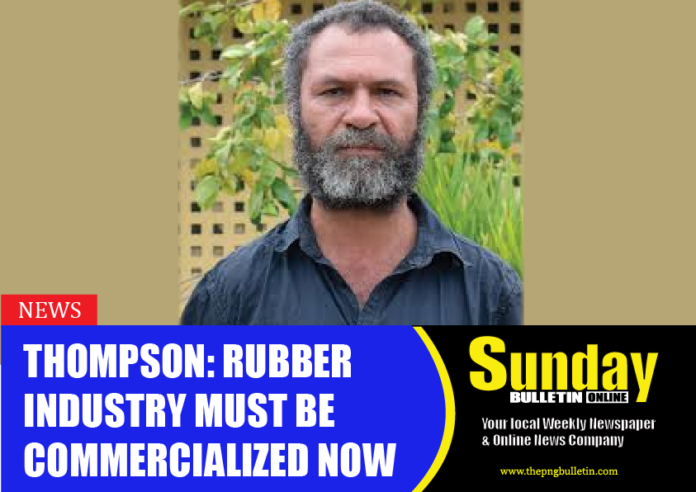THE Farmers and Settlers Association with its Cape Rodney Farmers and Settlers Association held the Rubber Stakeholders Forum on 25th March 2025 at Upulima in Abau District.
The purpose of the forum was to draw the policy makers and implementers to the reality of situations affecting and impacting the farmers and growers, and people and the value chain.
Rubber is mostly plantations and Estate crop on State Lease in East Sepik, Gulf and Central provinces, apart from customary land smallholders in Western.
President of Farmers and Settlers, Mr. Wilson Thompson (pictured) emphasized that to commercialise agriculture in PNG, Rubber industry should be first as it is grown in few provinces on State land and initially funded by National Development Bank (NDB).
He called on DAL and Rubber Board to fix the Estate roads and bring in aggregators to buy the crop at the Agriculture Settlement Scheme in Gavien, Murua, Bakaiodu, Boregaina and in Cape Rodney and get the NDB to issue agriculture loans under the Government SME Loan Scheme.
Speaking on behalf of the settlers, Mr. Mervyn Hibo stated that it will be more fitting and appropriate to take the meeting to where the rubber farmers and growers are.
The growers and settlers’ rep spoke about land titles not issued, absence of extension services, and training and lack of buyers and credit finance.
The HFSA thanked Sir Puka Temu and Abau DDA for their support in getting the farmers from Moreguina, Ianu and Cocoalands to the meeting and support.
“We also acknowledge Rigo Rice, Zenag Chicken, Vik360, and Farmers and Settlers Association and Upulima Primary School and community for their financial and logistic support.
“We thank DAL, Rubber Board, National Research Institute, Investment Promotion Authority, Kumul Agriculture Ltd, Kumul Consolidated Holdings Ltd, WR Carpenter’s, Galley Reach Holdings, Abau District and local community, settlers and growers from ESP, Gulf, Rigo, and Abau and media who attended.”
Upulima is stage 3 of the Cape Rodney Rubber resettlement Scheme and one of the four subdivisions of Cape Rodney Agriculture Development Project (CRADP) funded through Asian Development Bank.

